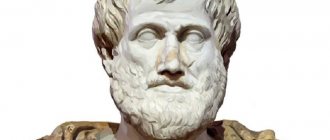Morality is a set of standards that allow people to live together in groups—what societies deem “right” and “acceptable.” Sometimes acting morally means that people must sacrifice their short-term interests for the good of society. Individuals who go against these standards may be considered immoral. But can we say that morality is the same for everyone, stable and unshakable? Let's understand the concept and see how morality changes over time.
Where does morality come from? Scientists have not yet agreed on this issue, but there are several most common theories:
- Freudian Morality and the Superego - Freud proposed that moral development occurs when a person's ability to ignore his or her egoistic needs is replaced by the values of important socializing agents (such as a person's parents).
- Piaget's Theory of Moral Development - Jean Piaget focused on the social-cognitive and socio-emotional perspectives of development and proposed that moral development occurs over time, at certain stages, when children learn to accept certain moral standards of behavior for their own sake, rather than simply complying with moral standards. norms because they don't want to get in trouble.
- Behavioral theory of B.F. Skinner - Skinner focused on the power of external influences that determine human development. For example, a child who receives praise for being kind may treat someone kindly again out of a desire to receive positive attention in the future.
- Kohlberg's Moral Reasoning - Lawrence Kohlberg proposed six stages of moral development that go beyond Piaget's theory. Kohlberg proposed that a series of questions could be used to determine an adult's stage of thinking.
When it comes to what triggers the development of morality, the dominant modern view on this issue is close to the position set forth by the 18th-century Scottish philosopher David Hume. He considered moral reason to be a "slave of the passions"
, and Hume's view is supported by research that suggests our judgments of right and wrong are influenced by emotional reactions such as sympathy and disgust. This view is consistent with the recent discovery that the elementary moral sense is universal and appears very early. Thus, infants as young as six months judge people by how they treat others, and one-year-old children exhibit spontaneous altruism.
Looking at the big picture, this means that we have little conscious control over our understanding of right and wrong
It is quite possible that in the future this theory will turn out to be erroneous due to the complete denial of reason. After all, emotional reactions by themselves cannot explain one of the most interesting aspects of human nature - the evolution of morality.
Values such as caring, compassion and safety, for example, are more important now than in the 1980s, the importance of respect for authority has fallen since the early 20th century, while judgments of right and wrong based on loyalty to country and family have steadily risen. increased. These results were obtained by the authors of a study published in PLOS One
, which showed distinctive trends in people's moral priorities between 1900 and 2007.
How we should understand these changes in moral sensibility is an interesting question. Morality itself is not a rigid or monolithic system; moral foundations theory, for example, posits as many as five moral rhetorics, each with its own set of virtues and vices:
- Morality based on purity, ideas of holiness and piety. When standards of purity are violated, the reaction is one of disgust and violators are considered unclean and tainted.
- A morality based on authority, valuing duty, respect and public order. Hates those who show disrespect and disobedience.
- A morality based on justice, which is opposed to a morality based on authority. Judges good and evil using the values of equality, impartiality and tolerance, and despises bias and prejudice.
- In-group morality that values loyalty to family, community, or nation and views those who threaten or undermine them as immoral.
- A harm-based morality that values caring, compassion, and safety and views wrongness in terms of suffering, mistreatment, and cruelty.
People of different ages, genders, backgrounds, and political beliefs use these types of morality to varying degrees. Cultures as a whole, over time, increase emphasis on some moral foundations and decrease emphasis on others.
What is morality
Morality is a system of generally accepted norms of behavior aimed at improving and regulating relationships between people. The definition of the term belongs to the ancient Roman philosopher Cicero.
The main questions that morality answers are related to the understanding of good and evil. What can and should be done, and what cannot be done? Why do people respect each other and why don’t they? In other words, it is a set of unspoken rules about how to live, existing to ensure that people remain human.
This is interesting: what is the connection between activity and human qualities?
Another category of ethics, morality, is similar in content and purpose to morality, but differs from it in its greater focus on the personal, psychological attitude of each person.
From the above it is clear that morality is the subject of the study of ethics. Often these two concepts are perceived as synonyms. They differ in that the latter relates more to theory, and the former to practice.
There is a generally accepted ethics of certain eras and professions (journalism, medicine, etc.).
Indicator of moral maturity of a person
Volitional personality traits - what is it in psychology, their formation
In everyday life, morality is synonymous with the concept of a “highly moral personality.” To become like this, you need to become psychologically mature. Here are some criteria for a moral personality:
- Responsibility is a person’s ability to understand that his actions have consequences.
- Internal locus of control. A morally mature person will not shift responsibility to other people. Instead of looking for someone to blame, he will think about how to solve the problem or correct the mistakes he has made.
- Adequate self-esteem. Any moral person soberly assesses his strengths and weaknesses and acts based on them. He actively applies the former, and compensates for the latter or tries to correct it. A mature person will not lean to the other extreme - hyper-responsibility. Not everything depends on her, so she clearly distinguishes which situations were provoked and which happened by chance.
- The ability to reflect: analyze one’s thinking, actions and the situation in which a person finds himself. This allows you to draw conclusions and put them into practice.
- Willingness to be punished or experience the unpleasant consequences of one's actions. Lack of desire to run from problems caused by mistakes.
- The ability to predict the consequences of your actions before they are committed. For example, a person addicted to alcohol does not think about the consequences of his drinking. If he had thought about it seriously before he poured himself a drink, he might have been able to refrain.
Thus, moral maturity goes hand in hand with personal maturity. Its central concept is responsibility, which includes all the points described.
A good elephant is an example of morality
Important ! The formation of a highly moral personality is a long process that begins when a person is a preschooler. Kindergartens use different methods to develop intelligent individuals who will show respect for themselves and others. At school they teach social studies, where they talk about morality.
Theories of metaethics
Celia Green identifies two types of morality:
- territorial and
- tribal or folk.
Territorial morality is paradoxical in that people in it are divided into “us” and “strangers” supposedly for the purpose of survival. At the same time, the fact of hospitality to “strangers” is inexplicable.
This is interesting: what is society, what is its meaning in philosophy.
Examples
A morally mature person is the personification of successfully completed socialization. This is a person who has learned the norms of behavior encouraged by society and uses them in practice as a guide for his actions. Moreover, the desire to comply with generally accepted behavioral standards is dictated not by fear of reproach, punishment or possible benefit, but by personal beliefs, motives and principles. Sociologists give numerous examples of the manifestation of moral feelings:
- Humanity, philanthropy.
- Hard work, diligence.
- Loyalty, devotion.
- Sense of tact, delicacy.
- Spirituality, religiosity.
- Sincerity, openness.
Altruistic behavior patterns are inherent in many animals. Often females raise offspring of another species and show selfless care for their young. Helping relatives of a similar genotype contributes to the survival of competitive species, which significantly expands the understanding of natural selection of individual orientation. Such behavior is due to natural selection of group orientation; it helps the survival of the entire population.
Drawing analogies, we can say that the moral behavior of an individual is laid down in biological programs and is implemented at a subconscious level. People are biological organisms that are characterized by a certain pattern of behavior on a subconscious, reflex level. Among the reflexes inherent in nature and correlating with the concept of morality, it is worth noting:
- Maternal instinct.
- Caring for a partner with whom the instinct of procreation is realized.
- Caring for relatives and the population (society) as a whole.
- A sense of patriotism (love for the Motherland, place of birth).
Vivid examples of spontaneous morality are actions that are based on a person’s subconscious desire to follow norms that contribute to the preservation of the population as a whole. A woman breaks off a relationship with her lover upon learning that he is married, subconsciously assessing such a relationship as unpromising (in relation to procreation) and immoral (causing moral harm to the legal spouse of the partner, and therefore threatening a relative of a similar genotype and population). Special manuals provide other examples of spontaneous morality:
- Providing assistance to an elderly person who is unable to cross a busy highway on his own.
- Stopping a personal vehicle and assisting a person who is standing on the side of the road and gesturing for help.
- An involuntary desire to help carry a heavy bag to a person who, for various reasons (old age, disability, physical weakness), is unable to cope with the task.
The presence of immoral people who violate moral standards testifies to the relative freedom of a person from the influence of biologically embedded models of normal behavior. A person is endowed with intelligence, the ability to think logically, predict, plan and independently choose moral values. Examples of the deformation of universal human norms can be traced in historical periods of totalitarian regimes, for example, Hitler in Germany, Pinochet in Chile, Stalin in the USSR.
Moral qualities are an indicator of a person’s level of intelligence and spiritual development, a reflection of the degree of his socialization and the presence of self-control. Morality is the basis of humanism, humanity and civilization. The collapse of moral ideals is accompanied by a surge in crime in society, indicates the degradation of members of society, and foreshadows large-scale humanitarian disasters.
We are glad to welcome you, dear readers of Valery Kharlamov’s blog! Morality is the basis, the rules on which a person relies in his activities and life in order to achieve success, respect and recognition. And today we will look at what moral qualities a person has, so that you understand what you need to pay attention to if you want to improve and develop.
Content:
Functions of morality
The main functions of morality include:
- Educational - forms the right outlook on life, is able to influence a person, regardless of his age. The educational function is one of the main ones in the process of personality development.
- Regulatory - dictates the basic norms of behavior in society.
- Evaluative - gives an understanding of everything that happens from the position of division into good and evil. Answers the questions: What should and should not be done? What should you do in different situations? Which actions are praised and which are condemned?
- Controlling - allows you to draw a conclusion about the morality of actions and control them on the part of conscience and society.
- Integrating - unites everyone with common moral principles, its task is to preserve unity and peace in society, as well as the spirituality of everyone.
Violation of moral standards - why?
What pushes Scamp again and again to violate the Rules established from outside, and brazenly go against the moral norms established in society?
Because he was born disobedient, and when he was taught to be obedient, the Moral Giants made a number of pedagogical mistakes, using excessive violence (or insufficient?) Which is why the naughty man decided that he was truly naughty when he was naughty, and not when he obediently followed the rules of the Giants.
- And so he, dependent on his bizarrely curved line, turns out to be dependent on everything that can make this line even crooked, for example, on beer and meat.
- He may also not wear a mask during an epidemic, not get vaccinated,
- not to believe Putin, Solovyov and Skabeeva,
- cheat on your wife with every skirt you're lucky enough to lift up,
- teach boys to smoke in the backyard of the school,
- and, worst of all, constantly swearing.
But was his addiction to meat and beer love? And what is love if not a way of immorally protecting one’s dependence on moral standards?
For example, lust
Horrible disgusting! Simply an abomination!
And the most disgusting thing is that everyone feels it, even though they blush with shame. But in order to protect yourself from a moral norm that condemns lust, you need to give vice a beautiful form, put it in beautiful words and call it love.
And sometimes you actually add something truly sublime to it, for example, astronomy and gifts from the stars to your beloved maiden. Or organize a “pride parade,” as homosexuals do in developed countries.
“A crooked man, I would straighten him out,” Ivan Karamazov told me yesterday. Or it seemed to me?
The structure of morality
An important niche in the structure of morality is a system of values, consisting of a set of public and individual moral views and ideals.
Values are divided into primary, having the highest level of significance, and secondary.
The highest value is a person’s life, his attitude towards his neighbors and the world as a whole. value series is built in relation to this guideline : love, peaceful coexistence, altruism, honesty, responsibility, courage, desire for self-improvement, hard work, etc.
It should be noted that this hierarchy can change in the process of personality development - for example, teenagers who do not fully understand the significance of their actions may commit a crime and harm the lives of other people just for the sake of the approval of their peers. Or, for example, a sense of responsibility - it also manifests itself with varying strength, depending on age, marital status and place in society.
This is interesting: the meaning of the term immoral, who is an immoral person?
It is important to form the correct value system in childhood, convincing with words and personal example.
Society promotes an idealized value system, that is, one in which, if followed, a person will make as few mistakes as possible in relationships with others. However, everyone has the right to choose - to follow this system or to be an adherent of another, if, of course, it does not cross the boundaries of legal norms. This decision is called a moral choice.
Traits and Concepts
Morality refers to the concepts generally accepted in society about evil and good. The ability to distinguish between criteria is manifested in the behavior of an individual or in groups of people. Morality acts as a method of self-organization of a social formation with certain aspects of control. Distinctive features of moral standards:
- the rules apply to all members of society and do not depend on their position in society;
- a person has the right to choose to follow moral canons or not, and the decision is determined by conscience, religiosity, other prejudices and social consciousness;
- moral principles cover all spheres of life in the economy and social structure, extending to areas of human interests (business, education, creativity).
Philosophical ethics deals with the study of the essence of moral canons and their influence on human behavior and consciousness. On the issue of the origin and formation of spiritual rules, scientists take several positions and have different points of view.
The first category of scientists is inclined to think about divine reason, which determines the moral foundations of society. Their concept speaks of the desire of the human soul to merge with the creator, which requires the manifestation of high morality, the word about which God left people in the commandments.
Other philosophers in their point of view rely on the works of scientists P. Kropotkin and Charles Darwin. It is suggested that in animals and primitive man there was a similarity in the psychology of consciousness, therefore ethical standards were originally laid down by nature. The foundations were regulated by prohibitions and customs, while individuals identified themselves with other individuals.
The third category of scientists speaks about the formation of morality as a result of the development of human society. The source of morality is not the individual, but the roots lie in the conditions of social and historical development. The basis is the needs and aspirations to more optimally organize the coexistence of individual people in the surrounding space.
Basic norms
Moral principles are very diverse and relate to all areas of activity. The main issues that are addressed are the concept of good and evil, their relative assessment depending on the period of social development and era. Seven basic moral norms that are characteristic of religious teachings and can be traced in modern society:
- prudence and sound thinking are defined as the ability to make decisions without unnecessary emotionality and not succumb to momentary impulses;
- asceticism means abstinence from excess in sexual life, limitation in pleasures and food intake, since material excesses interfere with spiritual improvement;
- impartiality and justice are manifested in the assessment of people, respect for members of society, their interests and needs, while some actions cause admiration, while others require censure;
- the ability to overcome difficulties, the desire to share the experience gained with others;
- perseverance and hard work not only help you overcome obstacles in your path, but also benefit society;
- obedience and humility speak of an individual’s ability to recognize the situation in time and stop before committing a discreditable act;
- Tactfulness and politeness allow a person to establish constructive relationships and gain many profitable connections.
Philosophical works solve the problem of finding the meaning of life, the role of the individual and humanity. Each society has its own criteria for determining moral principles from the proposed list. What matters is the relationship between responsibilities and rights in the environment, the distribution of remuneration for work, and the approach to social inequality.
Known principles
In addition to generally accepted moral laws, there are principles of morality. These concepts help determine the forms of mutual communication and human activity in society. Norms concern the performance of individual actions, and principles determine the concept of direction of effort. Principles of conduct:
- humane attitude towards others, recognition of the dignity and importance of everyone;
- collective consciousness aimed at helping the common cause;
- altruism and the desire to selflessly support another person;
- mercy, good nature, manifestation of philanthropy in different conditions, compassion;
- rejection of selfishness and global individualization;
- a sense of proportion in emotions and actions.
Each person should tune in to constructive and positive ways of resolving controversial situations, while not wishing harm if people harm him out of ignorance.
The old principle of “an eye for an eye”, which is not considered highly moral, is not held in high esteem. The rule of morality that Aristotle set out in his works (the thesis of the golden mean) has not changed over the centuries. It says that a person needs to adhere to the kind of behavior with people that he wants to receive from them in return.
Moral norms
The concept of foundations implies certain views on what a person’s behavior should be in different areas of his life - how to behave in the family (mutual respect, trust, love, etc.), at work (arrive on time, honestly carry out assigned tasks, be polite with employees and superiors), with relatives, friends (to help and rescue in difficult situations, to support in every possible way), with acquaintances and strangers (to be polite, tactful and friendly). Here is an idealistic example of foundations.
In fact, not all people are close to these views and norms of behavior. Also, the system of moral principles includes concepts about actions taken in various life situations, for example: moving a grandmother across the road or giving up a seat on public transport, etc.
Foundations develop and may change slightly throughout a person’s life, but those laid down in childhood, the fundamental ones, basically remain unchanged.
In addition, they can be divided into public and individual. For example: not stealing is a social rule, but returning a lost wallet is a sign of an individual’s well-established personal, highly moral laws.
Definition
Moral qualities are a set of character properties that reflects a person’s inner world and worldview, his judgments about norms of behavior, which to a certain extent helps to assess the level of his spiritual development. Moral qualities include a set of human virtues that are developed in the process of accumulating practical, life experience.
Under the influence of external and internal factors, the formation of behavior patterns encouraged in society occurs, which further determine the characteristics of the individual’s actions, including in personal relationships. The definition of a term in psychology presupposes the formation of a system of rules that regulate human activity within society. Distinctive signs of positive moral qualities:
- Unselfishness.
- Lack of pragmatism.
- Altruistic, selfless.
Moral qualities are such spiritual values that comprehensively characterize a person, personify his inner content, which allows us to draw conclusions about a person’s psychotype. High moral qualities distinguish generous, noble, truthful people. The formation of moral qualities is carried out under the influence of intellect, emotions, and will. They can be:
- Positive (justice, honor, dignity). Character traits that do not conflict with the internal beliefs of the individual.
- Encouraged (responsibility, sense of duty). They encourage an individual to take certain actions that are approved by society, regardless of the internal attitudes of the individual himself.
- Negative (envy, money-grubbing, hypocrisy, cynicism). They contradict generally accepted principles and cause personal hostility on the part of other members of society.
Often the moral qualities inherent in one individual come into conflict, forcing him to experience emotions and make difficult moral choices. An example of a conflict between the principles of morality and morality and a person’s inner beliefs can be the moral choice that faces a doctor who is forced to treat a criminal.
The doctor experiences personal hostility towards the patient who has broken the law and committed an offense, but is bound by official duties and ethical standards and is forced to provide medical care to everyone in need. A similar example can be given with the participation of a lawyer who defends a criminal in court, experiencing negative emotions in connection with the assessment of his actions.
Similarities and differences between law and morality
Law and morality are closely related to each other: they serve to maintain order in interpersonal and general social interactions. What are legal norms are necessarily included in the system of moral principles, for example: you cannot cause bodily harm to others, steal, etc. Differences between morality and law:
- Actions prohibited by the legal system are subject to administrative or criminal punishment and public condemnation established by the state, while violations of moral principles are subject to only public condemnation.
- Legal norms are established by the state, and moral norms are established by society.
- Law has specific, established laws, morality is transmitted orally and sometimes does not have clear formulations.
Moral assessment
An act is an element of moral behavior. An action can be active or passive (the absence of any action in a situation that requires an active response). The moral assessment of actions is the determination of the degree of conformity between the behavior of a particular individual and generally accepted behavioral models encouraged by society. To adequately evaluate an action, they rely on the following criteria:
- The result of the action.
- Ways to achieve the goal. If a person resorts to antimoral actions to achieve what he wants, even if the result is positive, the overall impression of the individual’s behavior is negative.
- Motives that prompted an individual to act. If a person was motivated by noble impulses even in the event of a negative result condemned by society, the negative assessment is softened.
By adhering to chosen models of behavior, an individual finds a balance, a point of balance between his own aspirations, beliefs and standards established in society.
Religious morality
One of the obligatory tasks of religion is to maintain moral guidelines and cultivate in a person the desire to follow these principles.
We can say that the main function of religious morality is to explain what is “good” and what is “evil”, what is useful to man and society , and what is harmful.
The answers to these questions are given by different religions of the world with the difference that monotheistic religions (Christianity, Judaism, Islam) more clearly distinguish between the concepts of “good” and “evil” and are based on the 10 commandments of Moses. Based on these basic moral principles, all subsequent, secondary ones are formed.
Beliefs where polytheism is present (pagan or folk) can also promote some of the rules present in monotheism, but they often contain contradictions that are sometimes fatal.
List of qualities
Responsibility
A person must understand what consequences his activity entails or, conversely, inaction. Unfortunately, it is characteristic mainly of developed and mature people, independent and with self-respect. Because it is difficult to be responsible for your actions if you are used to someone else solving issues and problems. And also, if there is an opportunity to hide, so to speak, lie low and expect that everything will resolve itself.
But it is also difficult to stand aside and feel guilty for what they have done if a person is confident in himself and understands that he simply cannot look others in the eye, and also treat himself well, knowing the truth about his cowardice.
The formation and development of responsibility is ensured by such a method as the imposition of fines. That is, for every offense you need to do something that you don’t really like, but is useful. In terms of education, raising children, everything is clear, they know the rules and restrictions, if you break them, retribution will follow.
But in relation to yourself, you will have to use self-control and endurance in order to bring what you started to the end, and still deprive yourself of something in case of misconduct.
Honesty and openness
These seem to be positive qualities of a moral person, but you should be attentive and careful so as not to harm anyone. Suppose, by opening your soul to a perverted narcissist, you will only give him trump cards to control you, and save time for independently searching for your weaknesses. You will learn more about such a person from this article, and then you will understand why this is dangerous.
So, before you trust completely, be careful and attentive. But you must always be as honest as possible with yourself. It’s more pleasant to live in illusions, but no one has canceled reality, and if you ignore it, there is a risk of getting hurt, or even worse, crashing.
Patriotism
It manifests itself not only in the form of love for one’s homeland, city, planet in general, but also in showing interest in the traditions of one’s country. It is important to know the history of your ancestors, respect and appreciate them in order to pass on the accumulated knowledge further to your descendants.
Patriotism manifests itself in the desire to change for the better, if not the planet, then at least the city, the street, and, ultimately, oneself. So, what do you know about your family? Who did what, what kind of life did they live, what were they remembered for, what role did they perform during their lifetime, what did they strive for?
Humanism
This is humanity, care, empathy. The problem is that feelings happen, it’s not easy to cause them on purpose. Therefore, if a person does not experience sincere empathy, if he is simply accustomed to relying on some kind of insensitivity for some reason, he will have to make a lot of effort to develop this humanism.
Try to notice and be aware of the moments when you feel gratitude towards other people. Perhaps this will help develop your humanity. Yes, it’s difficult to just love everyone around you, because it’s about depersonalization and in general, you can dry up in one fine moment.
But if you identify the people who surround you and are interested in them, keep track of how they were useful, and how you can help them in return, then it becomes much easier. At the very least, a figure appears towards whom one can justifiably feel something.
Politeness
Allows you to think about a person that he is developed, well-mannered and harmonious. It is pleasant to deal with him and trust arises much faster, if only the politeness is sincere, and not pointedly pompous, with the goal of getting what you want by using someone else.
Discipline and culture of behavior
There are rules, foundations and norms in society, and in order to be in it, it is important to comply with them. Otherwise, you may even end up in prison.
There is such a definition as a deviant person is someone who is not able to behave in a disciplined manner and observe norms and laws. You will learn more about what this means and how to cope with deviance in the article at the link.
Loyalty
It is highly valued in the modern world, but it presupposes not only loyalty to your partner, but also to yourself, as well as to your given word. Therefore, if you want to be valued and trusted, always keep your promises. As a last resort, warn and explain if difficulties arise, so you can save the relationship and “face”.
Collectivism
Regardless of your personality type, that is, even if you are an introvert, it is important to be able to cooperate and conduct joint activities with the group in which you are. A person needs to feel that he belongs to some community. This allows you to feel support that there are a lot of similar people behind you, even classmates, colleagues, etc.
But in addition to belonging, you must be able to interact with those around you. Not only compete and defend yourself and your interests, but also cooperate, share something, find compromises and help.
Intelligence
A moral person must be intellectually developed, but this does not mean knowledge of formulas and theorems, but the level of his awareness. That is, to what extent he can rely on his experience and feelings, how he distinguishes between what is good and what is bad, whether he knows how to make choices and whether he generally understands what he wants from life and how he can achieve it.
You need to learn to feel every moment of your life, notice the present and appreciate it. Then time will not fly by in vain, depriving you of opportunities. Check out the article on mindfulness.
Hard work
Oddly enough, slackers and rakes are rarely considered moral people, as well as those who achieved success undeservedly, and even worse, “by going over their heads.” Be diligent and do not stop in the face of difficulties. Then at least you can recognize your contributions and efforts when you achieve your goals and dreams.
Tact
It is a kind of sense of proportion, what can be said and what cannot, how close one can get, what questions will be inappropriate, and so on. A tactful person appreciates another person's boundaries and notices when the other person has lost interest in order to avoid appearing intrusive.
By the way, tactfulness significantly reduces the number of conflicts and tense situations.
Spirituality
Morality is closely related to the moral and spiritual qualities of a person. That is, it is important not just to profess some religion, but to keep faith in something in your heart, pay attention to self-development, reading books, any practices that give harmony and peace, as well as an understanding of your purpose. You will find detailed recommendations on how to increase your spiritual level here.
Respect for the older generation
It is a small branch of humanity, its important component, but we decided to pay special attention to this point. Without respecting your past and origins, it is impossible to be grateful, and accordingly, there is no sense of self-worth and good self-esteem.
No matter what our parents and grandparents are like, no matter what kind of life they lived and what kind of relationship they developed or did not develop with them, there is always a moment for which we should thank them, and for which they are worthy of respect.
Do you know what this moment is? This is a choice once made to save life, no matter for you or your dad, mom... Because that is why you now have the opportunity to read these lines and just be. That is why you have a loved one, a close person or friend, an idol, etc. And it is important to teach children to respect the elderly, help them and, of course, pay attention, which they sometimes lack.
Caring for the environment
Care for nature, our smaller brothers. We have long moved away from primitiveness, so a moral person will put out the fire before leaving the forest. He will clean up the trash after himself and will not abuse animals, if only because he has compassion.
Moral or ethical codes
Different religions have formulated fundamental principles of moral behavior. The following ethical codes are known:
- The Ten Commandments of Moses are recognized by Christianity, Judaism and Islam, and are also basic to all world morality.
- The golden rule is to treat others the way you want them to treat you.
- Seven laws of the descendants of Noah - against murder, adultery, blasphemy, idolatry, theft, etc.
- Yama and niyama in Hinduism are the prohibition of violence, theft, lies, promiscuity, and greed.
- Eightfold Path of Buddhism
Morality has many aspects; with its help, the entire psycho-emotional sphere is regulated and streamlined, from individual decency to international relations.
In addition to ethics, the study of this subject is also carried out by the sociology of morality, which studies the nature of the formation of various value systems in individual social groups and the causes of emerging social conflicts caused by discrepancies in moral values, as well as possible ways to prevent them.
Morality is an essential condition for the existence of society. Its task is to make the life of each individual and society as a whole as good as possible by instilling in people the correct life priorities, values and foundations that turn the individual into a highly moral member of society.
Is it possible to have universal moral standards?
Attempts to unify moral standards have been made for a long time. An example of this is such a direction of philosophical thought as moral absolutism. In a nutshell, moral absolutism presupposes the existence of certain absolute moral standards, so they need to be found and strictly followed. And at the same time, he admits that it is not so simple [T. McConnell, 1981].
Moral universalism, also known as moral objectivism, stands in approximately the same position. His main idea is that the creation of universal moral standards is not only completely feasible, but also necessary.
One of the first attempts to implement this idea can be considered the Declaration of the Rights of Man and the Citizen of 1789, which is the greatest achievement of the French Revolution [Assemblée nationale constituante, 1789]. In a more expanded form, this idea is implemented in the norms of the Universal Declaration of Human Rights, which sets out the fundamental rights and freedoms of citizens [UN, 1948]. However, their widespread and unquestioning compliance is still very far away.
We began our conversation with the fact that moral norms are rules of behavior that govern relationships between people, and following them is the moral duty of everyone. However, in order for these norms to be observed everywhere, it is necessary that all people, without exception, consider following them as their moral duty.
Since universal acceptance of the declared norms does not occur, this gives grounds for moral relativism, according to which there are no single absolute concepts of good, evil, morality and morality and all these concepts are relative [A. Kruglov, 2011]. Let us clarify that the word “relativism” goes back to the Latin relativus, which means “relative”.
Moral nihilism has gone even further, which not only does not recognize the existence of single absolute concepts of good and evil, morality and ethics, but even the possibility of subjectively evaluating something as “bad” or “good,” “moral” or “immoral.” From this approach there is only one step to permissiveness, a cultural crisis and problems with the law [V. Porus, 2013].
In this regard, moral nihilism has much in common with moral skepticism, also known as the theory of moral errors (in English, moral error theory). According to this theory, morality, and, consequently, moral norms as such do not exist and cannot exist. Therefore, everything that society considers morality is nothing more than an invention of society itself for its own peace of mind [J. Mackie, 1977].
So how then can we answer the question: is it possible for there to be single universal moral norms? To do this, let’s first try to answer another question: what rules and moral standards do you know? Most likely, there will be no difficulties here. Some will remember “thou shalt not kill,” “thou shalt not steal,” “thou shalt not commit adultery,” and the rest of the 10 Christian commandments; others will speak of the need to observe the principles of justice; and for others, the main norms are politeness and mutual respect. And, of course, almost everyone is ready to quote the famous “act towards others as you would/would like them to act towards you.”
At a minimum, everyone will agree with this in words. Discrepancies begin only when it comes to practice. And it’s not just about such extreme cases as killing an enemy in war. Most officials do not consider receiving a kickback to be theft, although the kickback is included in the estimate and this is the same money that could be used for things useful to society, and not in your pocket. And the commandment “do not commit adultery” will stop from this indecency not every person who has gone on a business trip and is tired of the family routine.
In general, listing the norms and rules of morality and following them are, as they say in Odessa, “two big differences.” If everything is so complicated, do we really need moral standards today?
List of moral personality criteria
h21,0,0,0,0—>
First, let’s look at what positive qualities a person has, the presence of which determines his moral and ethical level:
p, blockquote4,0,1,0,0—>
- Humanism (philanthropy);
- Responsibility (in relation to people; taking responsibility for one’s actions, decisions, choices, etc.);
- Honesty;
- Loyalty;
- Respect for others (understanding and accepting their characteristics, for example, caring for a pregnant woman, attentive attitude towards the elderly);
- Tolerance (accepting the fact that no one has to be perfect);
- Politeness;
- Discipline (ability to keep your word, fulfill promises);
- Chastity;
- Honoring elders;
- Cleanliness, respect for other people's work.
Negative personality traits that relate specifically to the moral side can be designated as the opposite of those listed. Moreover, this means their absolute opposite . Since man is not a deity, there are periods in his life when he violates his own moral boundaries. For example, it is not always possible to tell the truth, because sometimes it can cause harm. Or a person may become rude in response to rudeness. When we talk about immorality, we mean a complete lack of morality or significant moral qualities.
p, blockquote5,0,0,0,0—>
It should be understood that morality and ethics are relative. At different times and among different peoples, they were formed and changed in their own way. Observance of high morality is important in religious cultures and families, since believers believe that for non-compliance with these laws they will be punished before God.
p, blockquote6,0,0,0,0—>
Before emancipation, women's morality (especially such qualities as chastity and fidelity) was practically a cult. In the modern world, the situation has shifted and now such moral convictions are no longer expected from the weaker sex.
p, blockquote7,0,0,0,0—>
The boundaries of morality in today's society are quite blurred, which causes a lot of controversy. Does this indicate human degradation or evolution?
p, blockquote8,1,0,0,0—>










